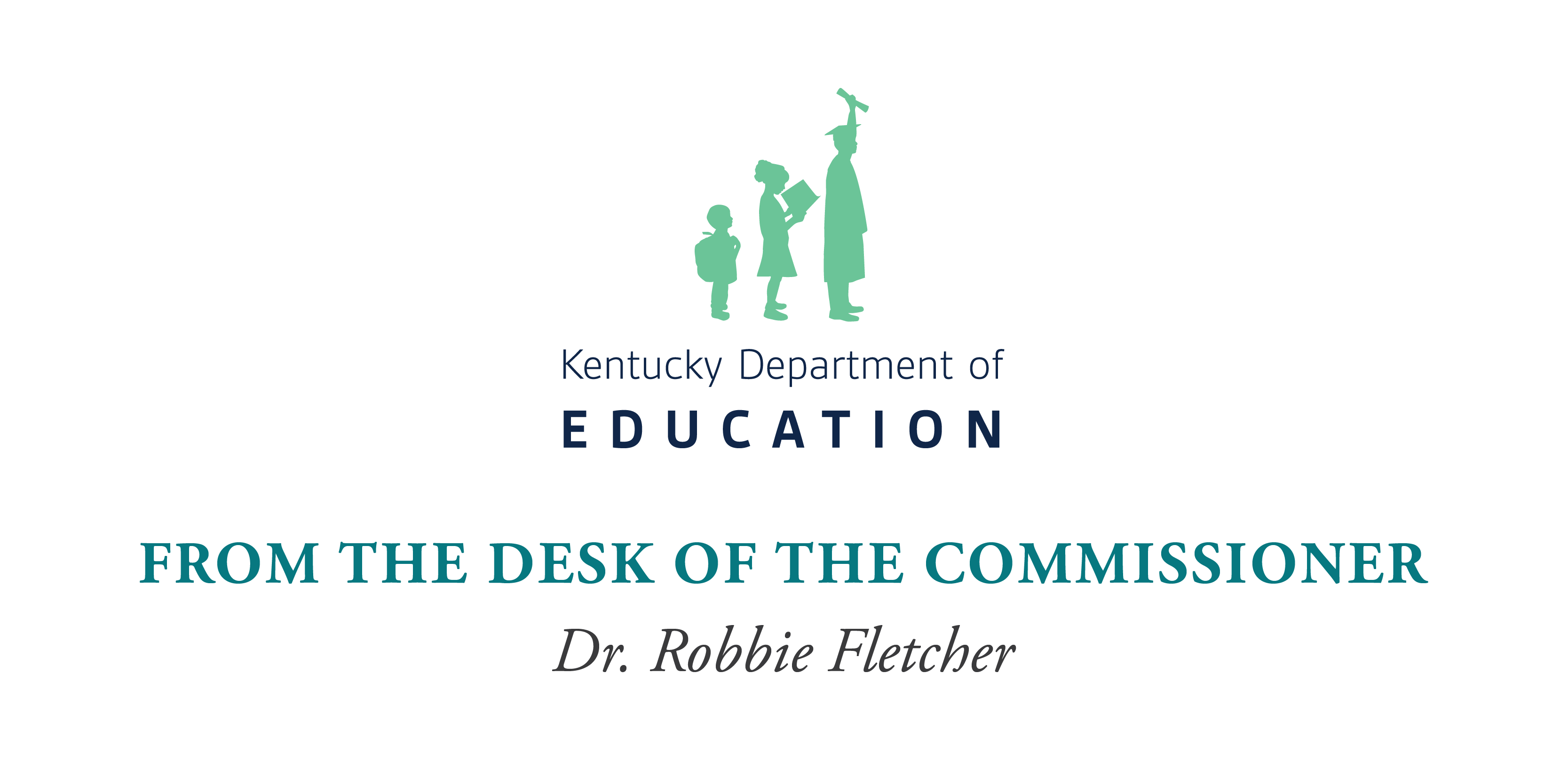
Kentucky Commissioner of Education Stephen Pruitt speaks at a May 15 news conference at which he detailed the schedule for review and revision of Kentucky’s Academic Standards. English/language arts and mathematics standards are currently online and open for public comment. Current standards will remain in place until new or revised standards are adopted.
Photo by Mike Marsee, May 15, 2017
(FRANKFORT, Ky.) – The Kentucky Department of Education is moving forward with the review and revision process for academic standards in English/language arts and mathematics.
The state’s current English/language arts and mathematics standards have been taught in Kentucky classrooms since 2011. Standards outline what students are taught – what they are expected to learn in each grade in order to successfully transition to the next level of learning – not how they are taught. The curriculum or methods and materials used to teach the standards is decided solely at the local level.
Senate Bill 1 (2017) calls for the Kentucky Department of Education to implement a process for reviewing all academic standards and aligned assessments beginning in the 2017-18 school year. The current schedule calls for one or two content areas to be reviewed each year and every six years thereafter on a rotating basis.
“We are starting with English/language arts and mathematics because those are the foundations for other learning,” Commissioner of Education Stephen Pruitt said. “Also, we started a review of these standards several years ago as part of the Kentucky Academic Standards Challenge and we want to honor the work that was done at that time.”
Nearly 4,000 people – about half of them educators – provided input during a public review on the English/language arts and mathematics standards in the 2014-15 school year. Overall, 88 percent of the respondents indicated no changes were needed. The rest indicated they would like to see some sort of change in one or more of the standards.
Since then, an extensive process involving elementary, middle, high school and postsecondary educators in both content areas, has resulted in revisions to the standards. New standards to address cursive writing and advanced coursework in mathematics, specifically calculus, also were added.
The English/language arts standards, as revised, are now available for public feedback online at this ELA survey link. The revised mathematics standards are available here. All Kentuckians are invited to provide comment on the revised standards, which are highlighted in the online tool along with the rationale for the change, as well as those that were not changed.
The Kentucky Department of Education will collect input on all of the draft standards in English/language arts and mathematics until Sept. 15.
Senate Bill 1 (2017) calls for revisions to the content standards that:
- focus on critical knowledge, skills and capacities needed for success in the global economy;
- result in fewer but more in-depth standards to facilitate mastery learning;
- communicate expectations more clearly and concisely to teachers, parents, students and citizens;
- are based on evidence-based research;
- consider international benchmarks; and
- ensure the standards are aligned from elementary to high school to postsecondary education so students can be successful at each education level.
The review process focuses heavily on educator involvement.
“No one knows Kentucky students better than Kentucky teachers,” Pruitt said. “Our teachers understand that Kentucky’s elementary and secondary academic standards must align with postsecondary readiness standards and with state career and technical education standards. This is the only way we can ensure we are preparing our students for the jobs of the future and to compete with those from other states and nations.”
Grade-level advisory panels, made up of educators teaching the subject standards being reviewed, along with a representative from an institution of higher education in Kentucky, will review the standards and assessments and make recommendations for changes to a Standards and Assessment Review Development Committee.
The Standards and Assessment Review and Development Committee (made up of six public school educators who teach in the academic content area being reviewed and two representatives from higher education) will review findings and make recommendations to revise or replace existing standards and adjust assessments to ensure alignment with the standards.
Under Senate Bill 1 (2017), the committee will review and send to the commissioner of education the final proposal along with the public feedback collected to share with the Interim Joint Committee on Education and a Standards/Assessment Review Process Committee. That committee, which is made up of three members appointed by the governor, three appointed by the president of the Senate, and three appointed by the speaker of the House of Representatives, in addition to the commissioner, will review the process to ensure that shareholders have had adequate opportunity for input. If the process is found sufficient, the recommendations (without amendment) go to the Kentucky Board of Education for consideration.
If the process is found deficient, the recommendations may be returned to the appropriate standards and assessment review committee.
Once the Kentucky Board of Education approves the revised standards and they clear the traditional regulatory review process, which provides yet an additional opportunity for public input, they will be implemented in all Kentucky public schools no later than the second academic year following the process. Existing standards will stay in place until new standards are approved.
“I am eager for the process of reviewing, revising and replacing Kentucky’s current educational standards to begin in accordance with Senate Bill 1,” said Sen. Mike Wilson, who sponsored Senate Bill 1 (2017). “Although it will certainly take a methodical approach, I firmly believe that, once completed, this will be of huge benefit to students and teachers across our state for generations to come.”
In the case of English/language arts and mathematics standards, the 2018-19 school year would be set aside for training on the revised standards and a field test of aligned assessments.
Pruitt has pledged that Kentucky teachers, rather than a test vendor, also will be developing state tests to ensure alignment with Kentucky’s standards.
The English/language arts and mathematics standards would be fully implemented and assessed in the 2019-20 school year.




Leave A Comment